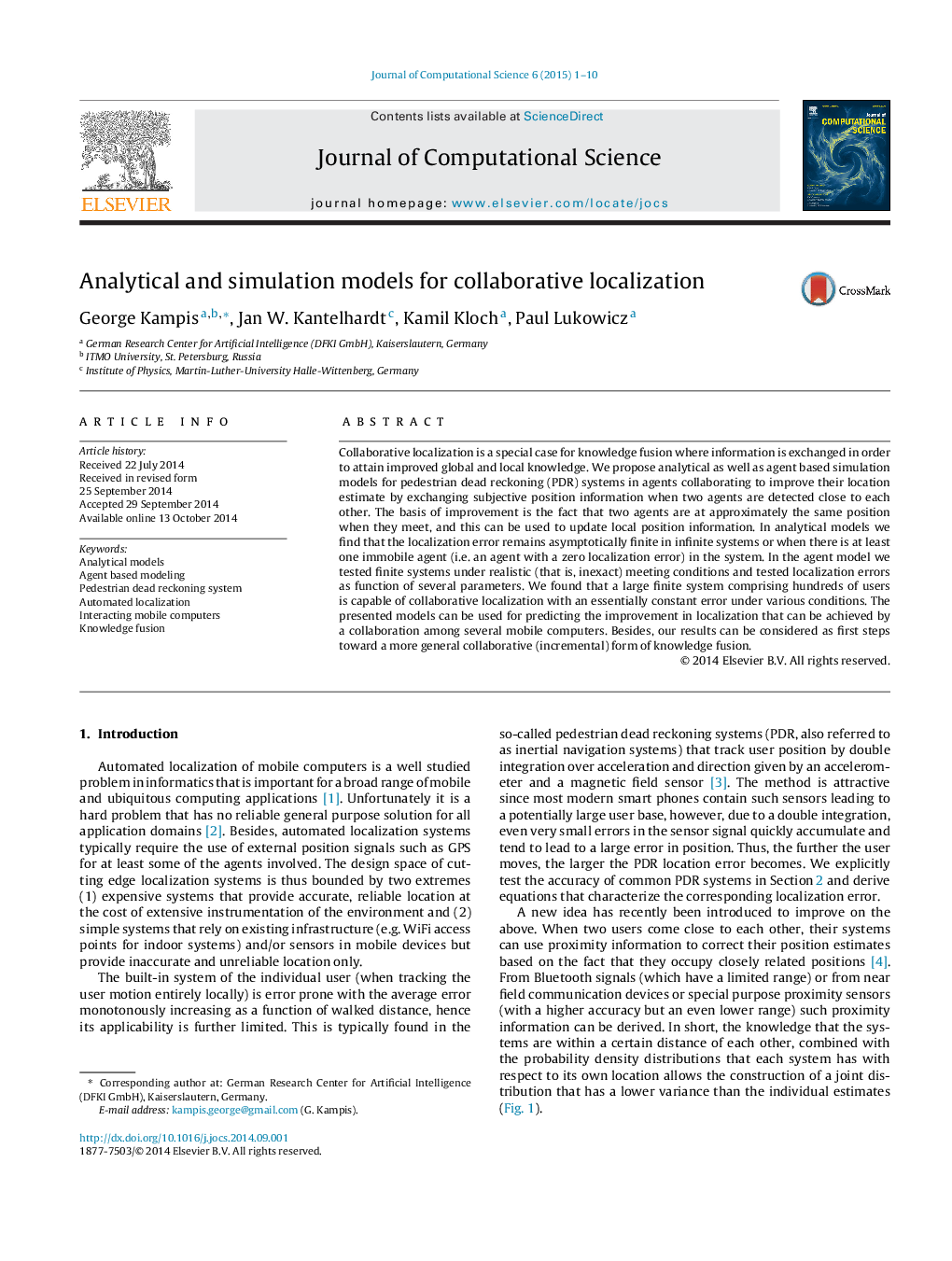| کد مقاله | کد نشریه | سال انتشار | مقاله انگلیسی | نسخه تمام متن |
|---|---|---|---|---|
| 429346 | 687462 | 2015 | 10 صفحه PDF | دانلود رایگان |
• We study errors in pedestrian dead reckoning (PDR) systems.
• Errors are shown to diverge in standalone agents.
• Agents can improve their localization estimate by collaborating.
• Errors can stay finite if the agents collaborate.
• We provide analytical and agent based models to justify this claim.
Collaborative localization is a special case for knowledge fusion where information is exchanged in order to attain improved global and local knowledge. We propose analytical as well as agent based simulation models for pedestrian dead reckoning (PDR) systems in agents collaborating to improve their location estimate by exchanging subjective position information when two agents are detected close to each other. The basis of improvement is the fact that two agents are at approximately the same position when they meet, and this can be used to update local position information. In analytical models we find that the localization error remains asymptotically finite in infinite systems or when there is at least one immobile agent (i.e. an agent with a zero localization error) in the system. In the agent model we tested finite systems under realistic (that is, inexact) meeting conditions and tested localization errors as function of several parameters. We found that a large finite system comprising hundreds of users is capable of collaborative localization with an essentially constant error under various conditions. The presented models can be used for predicting the improvement in localization that can be achieved by a collaboration among several mobile computers. Besides, our results can be considered as first steps toward a more general collaborative (incremental) form of knowledge fusion.
Journal: Journal of Computational Science - Volume 6, January 2015, Pages 1–10
